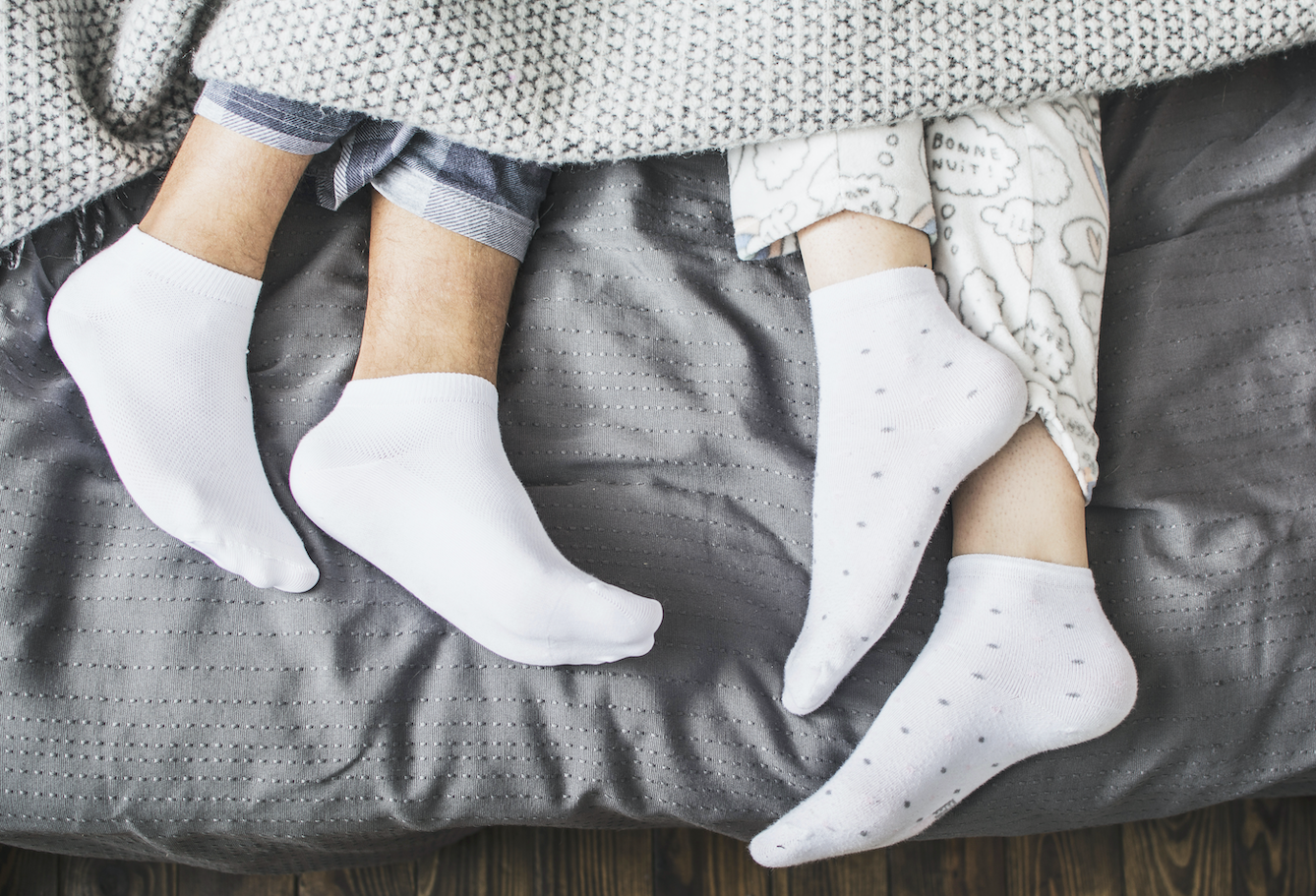Sleep is a non-negotiable. It’s as necessary to health and happiness as food, water, and exercise. It’s not surprising then, that when we don’t get enough sleep it can feel like our whole world has been turned upside down. In this article, we’ll take a look at common sleep disorders, some simple changes you can make at home to improve your sleep, supplements and drugs you can take to support better sleep, and last (but certainly not least) some exciting new technology that can support healthy sleep in a variety of ways.
What is Healthy Sleep?
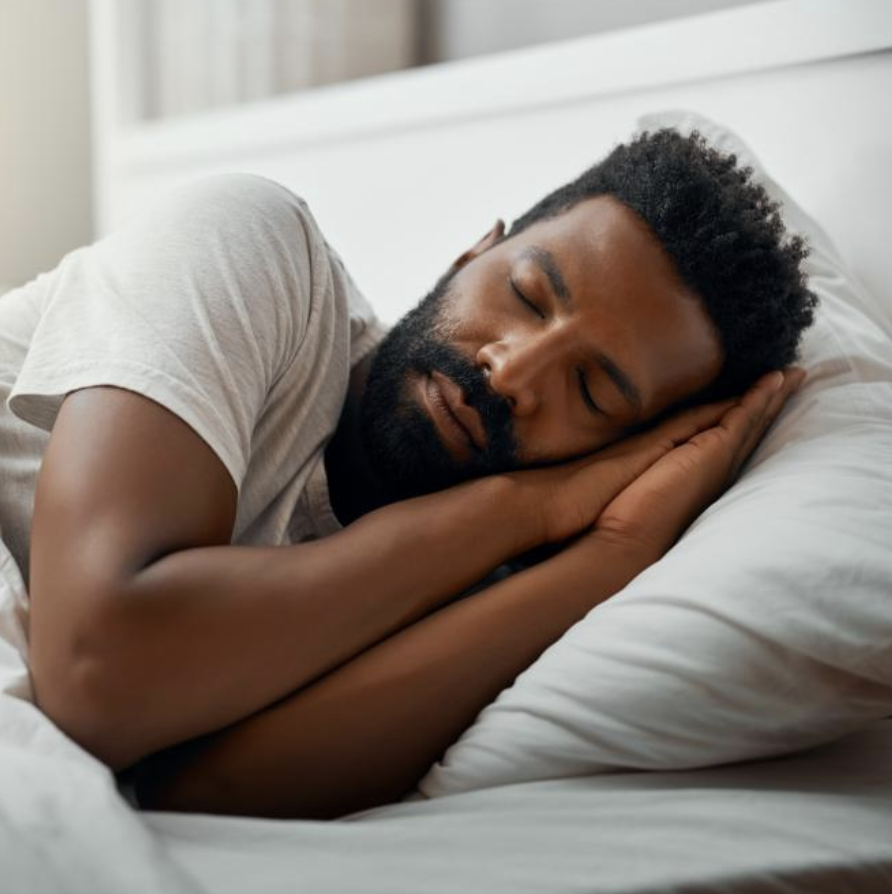
During healthy sleep, our brains cycle through five stages: stage 1, 2, 3, 4, and rapid eye movement (REM) sleep. According to an article published by the U.S. National Library of Medicine, each phase performs processes that lead to the following benefits:
- Feeling well-rested and energetic the next day
- Having the ability to learn information, gather insights, and form memories
- The opportunity to rest your heart and vascular system
- Release of growth hormones, which help children grow and boost muscle mass in adults.
- Release of sex hormones, which contribute to development and fertility
The production of cytokines (hormones that help the immune system) can fight infections and help us stay healthy.
The article specifies that you need all 5 phases of sleep to get these benefits and that going through these phases takes time.
How Much Sleep Do You Need?
The National Sleep Foundation tells us that “healthy adults need between 7 and 9 hours of sleep per night . Babies, young children, and teens need even more sleep to enable their growth and development. People over 65 should also get 7 to 8 hours per night.”
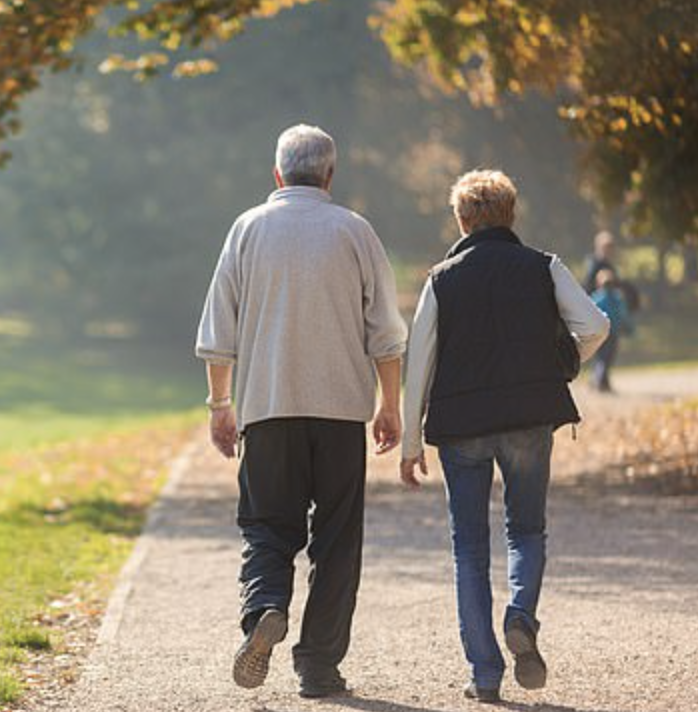
If these guidelines don’t sound right for your personal needs, you might consider trying this experiment offered in the New York Times’ WELL section .
- Find a span of about two weeks when you do not need to wake up at a specific time. (We know, it sounds impossible. Maybe on a vacation?)
- Turn your alarm clock off.
- Go to bed at the same time each night.
- Record what time you wake up each morning. Using a sleep diary can help you see patterns and identify problems and possible solutions.
When the two weeks are over, review your results. The article suggests that you may see longer sleep times the first few days, but the times should begin to level out and reveal the amount of sleep your body needs naturally.
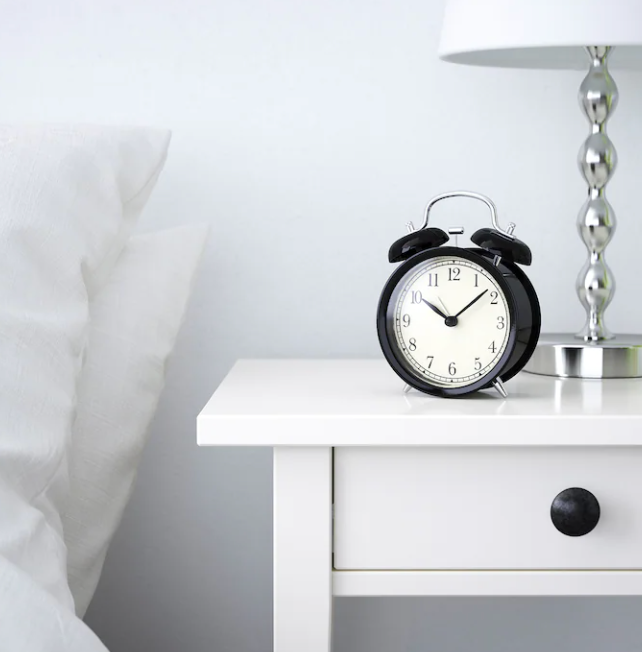
Once you know that, you can adjust your bedtime to give you the desired amount of sleep before waking. You may find that you don’t need an alarm clock at all.
Having routines when it comes to sleep and waking can really improve your ability to fall asleep at night. In fact, when it comes to sleep, the more routine the better! Having set mealtimes, workout times, and so on, can really help your body settle into some healthy patterns that encourage good sleep. It’s one of many habits that can help you sleep better.
Common Sleep Disorders
Sleep disorders are conditions that keep you from getting healthy sleep even under the best of conditions. They are different from conditions like heart disease, lung disease, mental illness, and chronic pain, which obstruct or make sleep difficult.
Sleep disorders are conditions in and of themselves:
- Insomnia – the inability to fall asleep and stay asleep
- Sleep apnea – a condition where you stop breathing for 10 seconds or more (often multiple times a night!) during sleep
- Restless leg syndrome (RLS) – a condition where your legs feel tingly, pin-prick sensations and a powerful urge to move during the night
- Hypersomnia – Uncontrollable sleeping during the day, including narcolepsy. Rather than giving you restful sleep, it causes extreme sleepiness during the day.
- Circadian rhythm disorders – problems sleeping and waking at the right times.
- Parasomnia – sleeping, talking, eating, walking or doing other activities in your sleep. This can also include more common conditions like night terrors, sleep paralysis and [bedwetting].

Your health practitioner may be able to support you in diagnosing these sleep disorders. Although a conversation with your doctor may not be all it takes to solve your sleep problems, it can certainly help. Sleep apnea, for instance, can be fairly well managed with a medical device, like a CPAP or an APAP
Cannabinoids in Cannabis: THC, CBD & CBN
In a recent article, the Community for Sleep-Care Professionals says, “It is a universally acknowledged truth that marijuana can make you sleepy.” They felt most comfortable recommending cannabis when sleep is disturbed by depression, anxiety, PTSD or chronic pain. However, they qualified this by saying they were not yet sure of the effect cannabis has on the quality of one’s sleep.
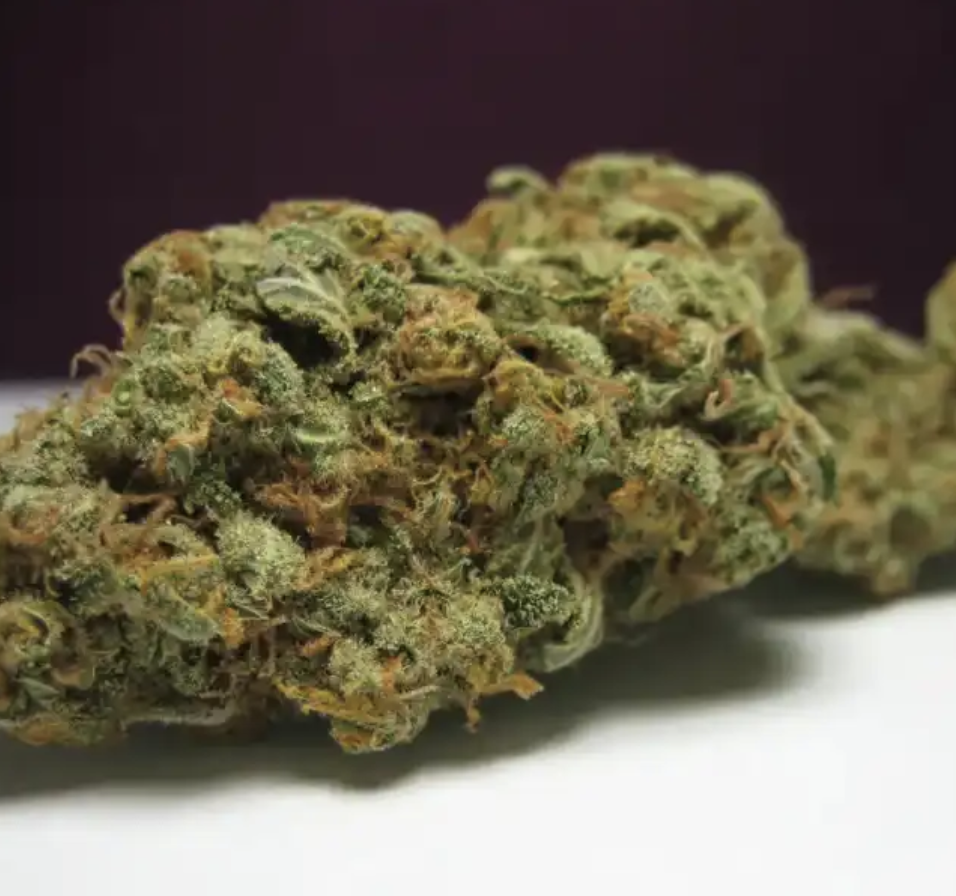
Cannabis works by triggering receptors in our endocannabinoid systems. These triggers help regulate hormones, immunity, pain, hunger and (You guessed it!) sleep!
There are several reasons that cannabis can help with a good night’s sleep and the secret is in the cannabinoids. Cannabinoids are naturally occurring compounds found in the cannabis Sativa plant (marijuana), which help cause medicinal and therapeutic effects. Three of the cannabinoids that are well-known for inducing a sleep-filled night are THC, CBD, and now, CBN.
THC is the psychoactive cannabinoid prized for the euphoric feeling you get when you ingest cannabis. CBD is a non-intoxicating cannabinoid sought for its relaxing, anti-anxiety, and other therapeutic benefits. CBN, a lesser-known cannabinoid, is now prized for its sleep-inducing effects.

So why not skip the high and go for the relaxing, sleep-friendly benefits of CBD? Two reasons. First, CBD does relax and relieve anxiety, but there is some evidence that too much CBD may actually spark feelings of wakefulness. However, this depends on how your body reacts to CBD, some people find that taking a high CBD edible or vaping before bed helps them relax into a deeper slumber.
THC, on the other hand, has been shown to cause users to sleep longer and may increase in slow-wave sleep, an essential aspect of cerebral restoration and recovery.. So if you’re looking for more, quality sleep, look for an Indica-dominant (sleep-friendly) cannabis product with both THC and CBD.
CBN, is often associated with THC products that have aged over time. Overexposure to light, and time, can convert some juicy flower (or even an edible) from an energizing boost into a couch-lock coma. However, the research that backs THC and CBD as a sleep aid, just isn’t there for CBN. That said, people within the cannabis industry have been touting CBN as the go-to for a restful night for decades. For now, the jury is out.
What Do I Purchase to Sleep Better?
Finding what works for you is an individual process. Not only may different cannabinoids, such as THC, CBD, and CBN work differently in your system, the type of consumption method and the product itself may vary in results. We often suggest taking the time to try a variety of consumption methods – vaping, edibles, gel caps, etc., and trying different brands, until you find what works best for you. Depending on your dispensary, you may be able to find a product that specializes in sleep and may in fact combine all three cannabinoids discussed above.
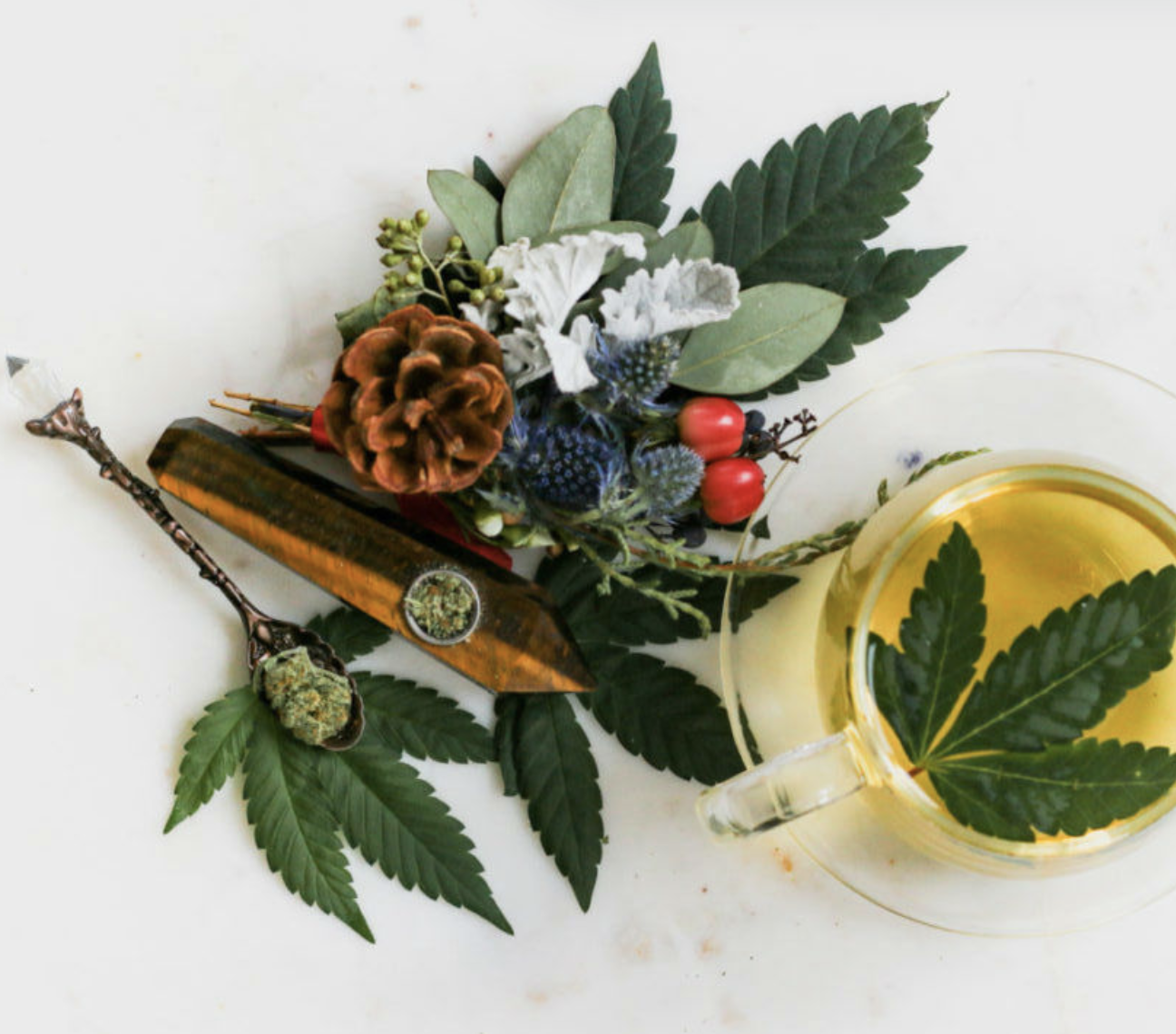
Be aware that dosage levels will vary person by person and that you may need to experiment to get the right dose for you. Your best friend may take an edible that is 2mg of THC and she sleeps well through the night, while you may need 10mg for the same effect. If you are new to cannabis, our recommendation is always to go low and go slow, and start with the minimal viable dosage and work up until you find what is right for you. We also suggest talking to a knowledgeable professional about cannabis practitioner before you start.
Get Your Medical Document & Purchase Medical Cannabis
It’s easy to get your medical document with the online Telehealth service HelloMD. Register, pay, and receive an online medical consultation with a licensed practitioner and start purchasing medical cannabis today.



